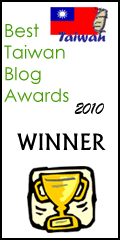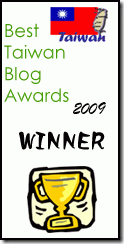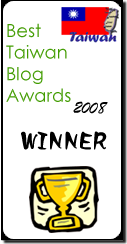Ancestor Worship and Politics
One of my biggest contentions (perhaps not so out of the ordinary) for the past several years has been that in traditional society there was little separation between religion and politics, which in contemporary society are perceived as separate fields. To this day, the links are everyway--from presidents getting advice from their higher fathers and evangelical ministers telling their flock how to vote to political leaders going to church or lighting incense in front of a popular deity.
In pre-modern China, the emperor was perceived as the Son of Heaven, the link between Heaven, Earth, and Humans. He was expected to fulfill the charge of Heaven--its Mandate. A big part of this was properly performing rituals aimed at harmonizing the balance of forces in the cosmos--forces that governed human society, as well as geological, meteorological, astronomical patterns.
Certain emperors, especially dynastic-founders, were known to have conducted something called the imperial tour of inspection, whereby the emperor would travel to different regions of his realm (those areas his armies had conquered), worship at the shrines of local deities and heroes, set up stalae inscriptions, and spread his charisma.
Anyone who has been to a well-planned political rally has some sense of this. I was there when Clinton (like a rock star) and Kerry came to Philadelphia in 2004 and when Howard Dean came in 2003. There is an excitement and a feeling of being part of something big, what Dean's then campaign advisor, Joe Trippi, termed the perfect wave. I wrote about this back in June 2005, in a post I called "The Cultic Qualities of American Politics."
I'm sure the people demonstrating in front of the Presidential Office building in Taipei are having a similar experience. Indeed, the language used by Shih Ming-teh and other anti-Chen campaign organizers strikes me as similar to that used by Trippi and other American progressives. Think: a million voices against corruption. Shih's language also has the ring of Crashing the Gates, by progressive American bloggers, Markos Moulitsas Zuniga and Jermome Armstrong.
I am not saying these two movements--American progressive and anti-Chen--are the same. Although both are targeted at national leaders, the forming is working within a democratic political frame; the latter is attempting to subvert the legal constraints of the electoral system. These movements resonate on a rhetorical level--I think comparisons end there.
I am also not saying that either of these movements is one and the same as the imperial tour of inspection in ancient China, though I imagine witnesses of the first emperor's imperial entourage as it passed through what is now Zhejiang Province--Chiang Kai-shek's homeland, but at the time the farthest boundary of the empire--must have looked on in awe, like paparazzi flocking around movie stars. And there is an issue of social engineering in all of the above.
When I started writing this post, I had a different goal in mind, since it has followed these multiple, winding paths. I wanted to compare how different politicians in Taiwan defined ancestor worship, or how their worship reflected their political views. I first thought about this some months ago when I read the wikipedia selection about James Soong's trip to China:
Soong's whirlwind 9 day, 5 city "Bridge Laying" tour began on May 5th, with a trip to the traditional Chinese capital of Xi'an. There, he visited the tomb memorial for the Yellow Emperor, a near-mythical historical figure from whom the Chinese believe they are descended. He then visited Nanjing, the former capital of the Republic of China, where he visited the tomb of ROC founder Sun Yat-sen. After a brief visit to Shanghai, Soong made an emotional return to his ancestral home in Hunan province. Soong and his family visited and honored the grave of his maternal grandmother buried in Xiangtan in a widely televised emotional ceremony. Choosing to appear as familiar as possible to his mainland hosts, Soong spoke his greetings in the local dialect in each of the cities that he visited.
Beyond sentimental visits, the important political aspect of his tour comes from his visit to Beijing. There, he shook hands with the general secretary of the Communist Party of China Hu Jintao, only the second major political figure from Taiwan to ever do so. The carefully scripted red-carpet ceremony was identical to the previous greeting for KMT Chairman Lien Chan. The key out-come of the meeting was the publication of a shared political platform between the Communist Party and Soong's People's First Party. Finally, Soong lectured at Qinghua University, an echo of Lien's lecture at Beijing University four weeks prior.
Soong's visit was designed to emphasize his belief in common shared roots for the Chinese people, a reflection of his pro-unification sentiment. He specifically chose to honor the historical ancestor of the Chinese people, the contemporary father of the Republic of China, and then his own direct ancestors in that precise order. His public comments addressed this continuous theme as well, receiving rapturous support from his mainland audience. The political consensus borne of the visit between the PFP and the CPC called for practical actions towards establishing links between Taiwan and mainland China, while firmly resisting Taiwanese independence.
Compare this with President Chen Shui-bian's celebration of the 320th birthday of his first ancestor to journey from China to Taiwan, which he and his family held in Kuantien Township, Tainan back in July:
Chen said that he participated in the ceremony not only to remind himself not to forget where he came from, but more importantly to acknowledge his forefather's choice in making Taiwan a permanent home for the succeeding generations, a statement from the presidential office said yesterday.
He said that in the last six years, he had always carried a note with him bearing the name of the place where his ancestor lived in Fujian before coming to Taiwan.
"His [the president's] ancestors moved to Taiwan 300 years ago owing to a series of natural calamities in Fujian in the 1700s. But since the first arrival of his ancestor 300 years ago, none of the Chen family have moved back to China as they've already settled and recognized Taiwan as their homeland," the presidential statement said.
Making comparisons to other historical migrations such as the English settling in the US and later calling themselves Americans, Chen said this spirit is the same as his Chinese ancestors leaving China and deciding to make Taiwan their permanent home.
The president commended the Taiwanese people, a majority of whom are descended from Chinese who arrived from the southeastern coast of China during the last three centuries, not to forget their family origins and to treasure their current home.
The president also took the occasion to say that he was still in search of the exact location of the village where his ancestor came from.
He said he remembered that his family came from Ciyao village in Fujian Province's Shaoan County, which was printed on a memorial tablet of his ancestors on the family altar at his home in Tainan.
The Chen family clan started compiling a genealogy book in June last year and has confirmed that the clan has lived for 13 generations in Taiwan.
The genealogy book is expected to be completed in October this year, according to a Central News Agency report yesterday.
















6 Comments:
Fantastic post. I've wanted to blog on this myself, Wulingren. I think it is really important to tease out the relationships between local religion and local politics.
Michael
Thanks. I was a little worried that some people might mis-interpret my comparison between the American progressive and anti-Chen movement. I think the motivations are quite different, and that the anti-Chen movement organizers have co-opted the type of populist language used by American netroots authors, who are most interested in getting more people engaged in democratic, electoral poltics.
The relationship between local religion and politics in Taiwan is fascinating--something I've thought a lot about, but need to keep examining. I'll try to do some more posts on this.
Hi Wulingren. I was fascinated by this post which I discovered through your Mandate of Heaven blog. I "seeded" it on Newsvine - which hopefully will draw it some traffic and deserved attention.
Click Here for the link on Newsvine in case you want to review any comments as they may come in.
Thanks Rob. Always appreciate your comments and thanks for seeding it at Newsvine. If you could, it might be good to add a "Taiwan" tag, but that's up to you.
Thought I had. I'll do so now.
Thanks. It is also possible that I read the tags improperly.
Post a Comment
<< Home